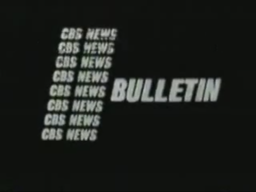The season of goodwill comes with its toll of health hazards. Queen Victoria brought Christmas trees to this country, so it’s her fault that every year your living room becomes a right royal mess.
Tree needles really are an eyesore. Every hospital in the country sees injuries caused by Christmas trees, usually corneal abrasions from a branch or needle. Several of the 250 species of pinacea also cause allergic reactions on face and hands, and the trees with the most attractive smell tend to produce the least attractive rashes.

Traditional glass baubles originate from the storybook town of Lauscha in Germany. In the mid-19th century, their glassblowers began making fragile ornaments, silvering the inside and lacquering the outside. If you’ve had the good taste and deep pockets to buy these fragile balls for your tree, be careful. The shards can tear your skin to ribbons. Get hideous decorations from the petrol station instead.
Deck the halls with boughs of holly, but beware. Kids enjoy nibbling red berries. As few as 20 can cause a permanent silent night. Mistletoe is dangerous too. Eating more than 10 berries causes severe diarrhoea and abdominal pain. Luckily it’s usually hung out of reach. However you can catch plenty of other things from the antics beneath it.
Actually anything can happen at Christmas. It affects every organ in the body, starting in about September. The pundits agree that the brain is the first to go, helped by lashings of Christmas spirit. If one of your relatives is comatose on the couch, that’s the usual cause, although head injuries, diabetes, and TV programmes are other likely diagnoses.
Then there’s carbon monoxide poisoning, especially if you’re a Scrooge about boiler maintenance. Predisposing factors are conventional flues, high winds, double glazing, and tightly closing windows and doors to maintain a cosy fug. CO poisoning typically causes dizziness, confusion, headaches, and unconsciousness, though it can also mimic almost any condition.
It’s hard not to mention food when the average Brit puts away 7,000 Calories on Christmas Day, which is about four times more than necessary. This Christmas, especially up in western Scotland, more ulcers will burst between 5:00 and 7:00 PM than at any other time of the year.
Other parts of the alimentary tract are also at risk. Some people accidentally swallow sharp objects such as toothpicks along with their Yuletide fare. The elderly are especially prone to this, not because their faculties are impaired, but because dentures interfere with the sensation up eating something sharp.
One woman in her 80s developed peritonitis days after enjoying a traditional Christmas cake with all the trimmings. Surgeons removed a decorative plastic robin from her bowel.
Finally, here’s my Christmas cracker riddle for you.
What’s the difference between Christmas Day and Christmas Disease? Surprisingly, almost everything. Christmas disease is a form of haemophilia due to an inherited lack of factor IX. Without it, the sufferer haemorrhages repeatedly from skin, gut, joints, and muscles. Christmas Day, on the other hand, comes but once a year. There’s just one similarity. Both can bleed you to death.
Stay well and have a happy Christmas.























































